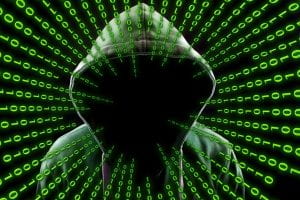Assessment 2 – Persuasive Blog
Unethical human activity is primarily responsible for a lack of privacy and safety on the Internet, this could be seen through looking at the professional and personal digital footprints of people like in social media for example, this blog will also showcase this statement in relation to ethics, security and privacy and how they all prove that unethical human activity is the real reason why there is a lack of privacy and safety online.
Having privacy and safety online for users is really important these days especially because of recent events such as covid-19 forcing most of the population to work from home, online on their computer desks. This resulted in a new wave of people that are now new to using the internet and are not fully informed on how the internet works, to be more specific, their digital footprint plus their safety and privacy online. This means that they are more susceptible to experiencing unethical human activity compared to people that have been using the internet for longer.

An example of this would be older people getting their valuable information stolen through “phishing links” which is a term for website links that are created for the sole purpose of doing unethical human activities, as soon as the user clicks this malicious link, the user is vulnerable to getting their important information like bank details etc., stolen, they are also in danger of gaining a virus which could also be used to steal valuable information or destroy their computer devices. This was the case when a certain healthcare company from the United States, “Elara Caring”, got two of their employees targeted from a “phishing” email, which resulted in the showcasing of over 100,000 patient’s important information such as financial and bank information, driver’s licence numbers, social security numbers etc., (Haworth, 2021).

In terms of people’s safety of their digital footprint online, privacy plays a big role, there is a general idea when it comes to people’s digital footprint online that the more privacy you have, the more safe people will be, this idea is true to an extent, although people can change how much their social media profiles can be seen online through privacy settings in their accounts, hackers that have malicious intentions could still find ways to gain valuable information and “hack” individuals. An example would be a hacker pretending to be co-workers with individuals to gain valuable information, this is getting more common in workplaces especially with our current day in age, having the pandemic force most of the population work from home plus the modern influence of the social media effect on people going hand in hand will result to people oversharing their current living situations which makes it easier for unethical human activity to happen.
Hackers could get information to execute these type of unethical human activities by people posting their work meetings on social media, as to try and share their work setups from home, having their computer screen exposed when taking the photo could lead to individuals showcasing their personal emails, video call numbers and names of coworkers and client name lists, which are valuable information for hackers to use in helping them impersonate their coworkers (Paxton-Fear, 2021). This is an example of unethical human activity that results in lack of privacy and safety, even though users are using their social media platforms as it is intended to be, sharing and being social to their peers.
For people to avoid unethical human activity, it is highly recommended to that they polish up on their security, to further explain, people knowing the certain things like “phishing links” as discussed above or certain situations where their valuable information could be shared by accident, could greatly benefit users from being a victim of unethical human activities. Investing in a highly regarded “firewall” could also work in the internet user’s favour as it adds a layer of protection from most hackers and viruses. A firewall is like the gate that sits between a private internal network and the public Internet, its main purpose is to keep the bad traffic away and allow the good traffic to go through (Check Point Software, n.d.).
Furthermore, users being aware of certain parts of the internet where unethical human behaviour could be more common adds to one’s security while surfing the internet. What is meant by this is not going to websites that are explicit like pornographic websites, as they contain more untrustworthy links/advertisements that are likely phishing individual’s valuable information. Pornographic websites are more catered to adult audiences more specifically 18 year olds and above depending on your state or country’s laws, but this does not mean people that are under that age could not visit these explicit sites as security to enter these sites are not strong, anyone could just put the website url and gain access. This is where security measures like parental control software come in handy, parental control software works as a security measure for parents to use on their children’s devices. It stops them from accessing explicit sites like pornographic sites that could be a possible phishing site. Some parental control softwares even have options that times screen time on devices, this means that there’s only a certain amount of time per day a user can use the device and the device will automatically shut down, this is especially helpful for parents that want their kids to play and spend more time outside other than just spending all day in the house playing games on their devices.

To conclude this blog, the showcasing of all the points that have been talked about above provides more than enough evidence that unethical human activity is primarily responsible for a lack of privacy and safety on the internet, explicit phishing sites are made by unethical hackers for the sole purpose of gaining valuable information to take advantage of vulnerable users of the internet. Although there are safety measures for individuals and things like being more aware of where their digital footprint could be vulnerable, there are still multiple different ways an unethical hacker could hack an individual, which results in the lack of privacy and safety of users online no matter what.
References
Haworth, J. (2021, March 8). Data breach at healthcare provider Elara Caring exposes 100,000 patients’ information. The Daily Swig | Cybersecurity News and Views. https://portswigger.net/daily-swig/data-breach-at-healthcare-provider-elara-caring-exposes-100-000-patients-information
Paxton-Fear, K. (2021, February 22). I’m an ethical hacker. Here’s how I could use social media to scam you. Fast Company. https://www.fastcompany.com/90606386/social-media-scam-phishing-ethical-hacker
What is a Firewall. (n.d.). Check Point Software. Retrieved May 12, 2022, from https://www.checkpoint.com/cyber-hub/network-security/what-is-firewall/
Images are free and are allowed for commercial and creative use with no attribution required. sourced from the link below :
https://pixabay.com/photos/entrepreneur-idea-competence-vision-1340649/